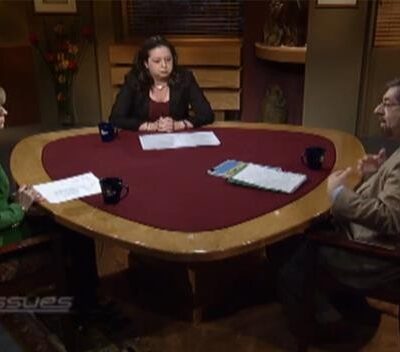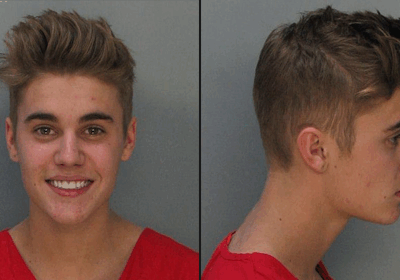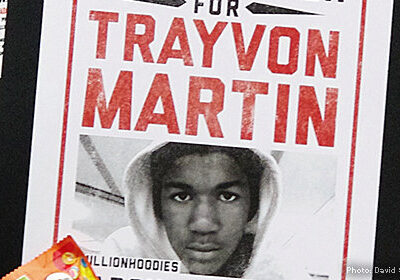News & Commentary
ACLU of Florida on WPBT2: Why Florida Needs Marijuana Reform
On Monday of this week, the Florida Supreme Court approved the ballot language for a proposed ballot initiative that would allow patients to legally obtain marijuana.
If the voters of Florida approve the measure, it will be an important victory for patients as well as reflect a recognition by Floridians that our fear-driven drug policies that have destroyed communities need to be re-evaluated and changed.
This past Friday, January 24th, ACLU of Florida Executive Director Howard Simon appeared on WPBT2's weekly news and public affairs program, Issues, hosted by Helen Aguirre Ferré to discuss the ballot initiative and other possible reforms for marijuana policy in the state.

What Justin Bieber's Miami Beach Arrest Would Mean for Another Non-Citizen
By Diana Scholl
Communications Strategist, ACLU National
When I wrote about Justin Bieber's trouble with the law last week, we didn't know how far he'd fall in just a few days. Now Bieber has been arrested for late-night drag racing in Miami Beach.
If convicted, another immigrant in his situation would very likely languish in immigration detention before being deported. That person—like 84 percent of people in immigration detention-- would also likely not have an immigration attorney, let alone a high-priced one.
While the media is focused on what will happen to Bieber, let's instead focus on what will happen to all of the other immigrants who are detained and deported for lesser offenses than his. Learn more about them.
By Guest Blog- ACLU National

Time Out Is for Kids. This Isn't.
By Amy Fettig, ACLU National Prison Project & Tanya Greene, Advocacy and Policy Counsel
"I developed techniques to survive. I've learned to play chess with other [kids] through a six-inch wall to keep myself occupied. But for others, it breaks them, makes them either violent or suicidal."
These are the words of Lino Silva, who had been incarcerated in a juvenile facility for over seven years when she wrote them. The "it" she mentions is solitary confinement, a practice that juvenile facilities routinely use on the approximately 70,000 kids in this country who are in their care on any given day.
By Guest Blog- ACLU National

"I’ll Never See My Son's Prom Picture"
Alan Berger
Legislative Assistant, ACLU National
Lucille MacBeth, mother of slain Florida teen Jordan Russell Davis, did all she could to keep from crying during her testimony in front of the Senate Judiciary Subcommittee on the Constitution earlier this week. After nearly five minutes of testimony, Lucille stopped speaking, looked down and then back up, this time with tears in her eyes: "I'll never get to see my son's prom photo. I never get to hear how much he enjoys his dad's chili. No one else will ever get to know him. He'll never get to join the Marines like he dreamed and all because of guns and the power of these laws. These laws embolden people with hate to take action with that hate."
The hearing was to discuss the growth of violence and injustice associated with the "stand your ground" laws on the books in 25 states. Lucille's testimony, along with that of Trayvon Martin's mom, animated a largely academic discussion of the laws that the NAACP lists in their testimony as "the single greatest bringer of angst to our membership."
By Guest Blog- ACLU National

Release the Vote: Felon Disenfranchisement in Florida
In 2011, we saw a triple play of voter suppression with redistricting, HB 1355 (dubbed the Voter Suppression Act), and regressive changes to Florida’s Clemency Rules. The Florida legislature is accountable for the first two and to their credit, they did try to fix some of the mess that they created. But, Florida is not off the hook yet with disenfranchisement.
It saddens me to say that Florida ranks high on the list of states that disenfranchise individuals indefinitely after they have returned to the community. And as a result, our state’s denial of voting rights for people with past felony convictions is about to go under the international human rights microscope.
By Joyce Hamilton Henry

SAFE Act Anything But
By Eduardo Gonzalez, former director of the U.S. Marshals Service.
I have worked as a law enforcement professional for 34 years, rising through the ranks from patrolman to deputy director in the Miami-Dade Police Department during a 27-year career. Later, it was my privilege to return to my hometown of Tampa when I was selected to serve as its police chief. Finally, I was given the opportunity to serve at the national level as director of the U.S. Marshals Service for the past five-and-a-half years of my career.
There isn’t anyone I’ve worked with in law enforcement who would disagree that the single most important asset local police have in protecting public safety is the trust and cooperation of the community they are sworn to protect.
By admin

Stay Informed
Sign up to be the first to hear about how to take action.
By completing this form, I agree to receive occasional emails per the terms of the ACLU’s privacy statement.
By completing this form, I agree to receive occasional emails per the terms of the ACLU’s privacy statement.
